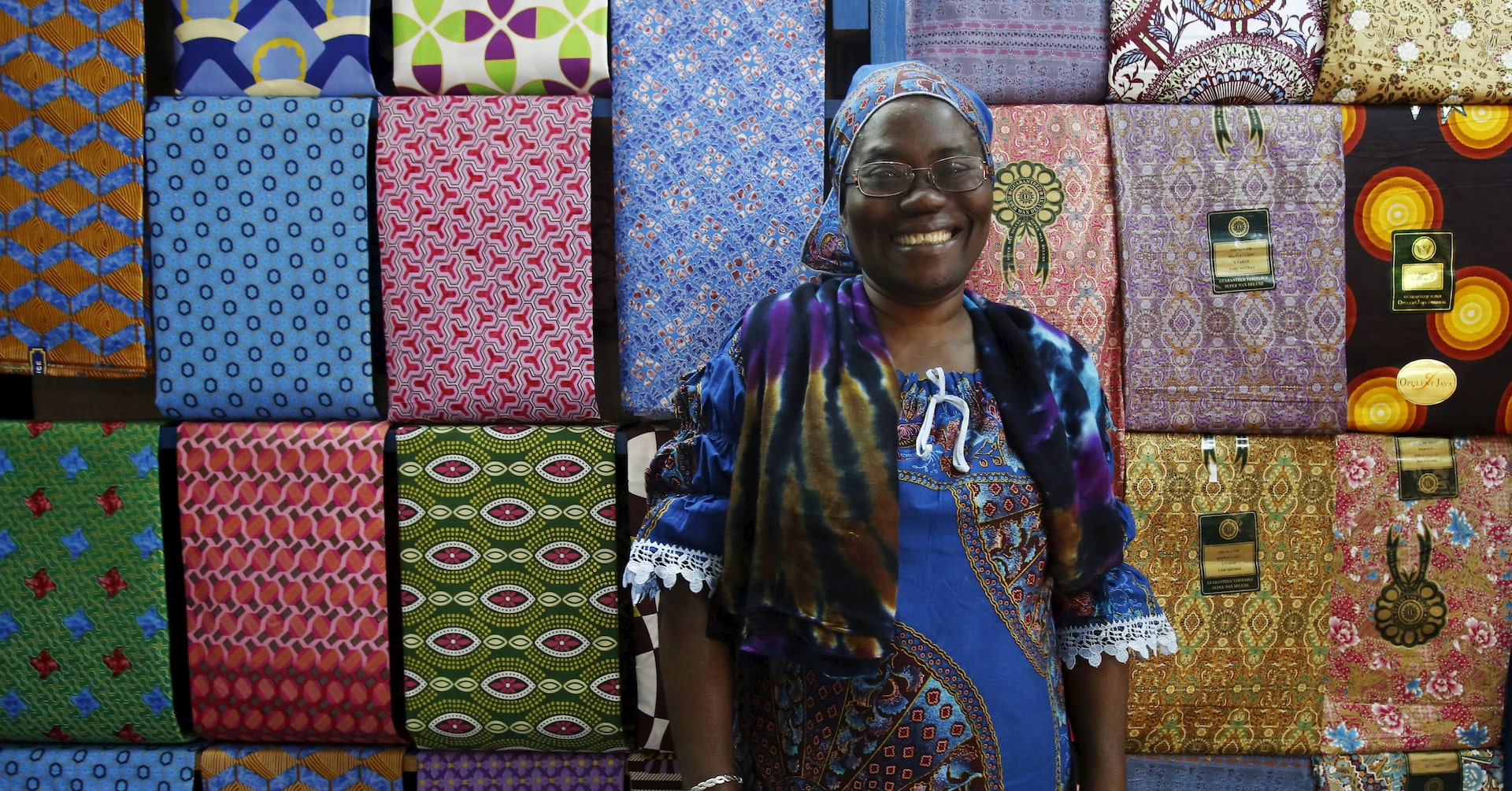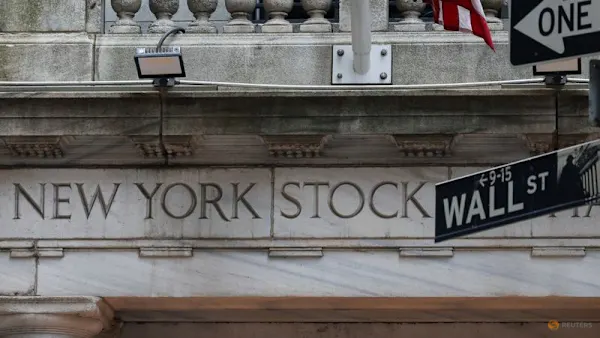
Summary
Political backlash against DE&I has squeezed funding for women’s rights
The Cherie Blair Foundation has reached over 300,000 women entrepreneurs
Listening to women’s lived experience is essential to economic empowerment
Tech innovation and digital banking are widening access for women
The Foundation’s HerVenture app offers practical business training globally
September 22 – Issues come and go, but the speed at which diversity, equity and inclusion (DEI) has dropped down the business sustainability agenda in recent months is extraordinary.
One influential voice pushing against the “anti-woke” tide is Cherie Blair, a leading British barrister and, most famously, wife of former UK Prime Minister (1997-2007) Tony Blair.
As a feminist, the 71-year-old international trade and human rights specialist is focused on what she sees as business’s systemic bias against women. “Business was built by men, for men, on the assumption that a lot of other things were being done by somebody else; (i.e.) women,” she says.
For the last 17 years, she has been doing her part to redress this imbalance through her charity, the Cherie Blair Foundation, which offers practical support to empower women entrepreneurs in low- and middle-income countries.
While the foundation’s programmes have so far reached over 300,000 women, Blair admits that championing women’s rights is getting harder.
Not only has the political backlash against DEI pushed the issue off the media agenda; it has also removed it from all-important funding streams. Most notably, the new U.S. administration’s effective closure of the world’s biggest aid agency, USAID, means organisations like hers are now competing for a much smaller pool of funds, she notes.
Fortunately, via partnerships with corporates such as PayPal, DHL Express, Marsh McLennan and Bank of America, Blair’s foundation is less affected by funding cuts. Its focus on female entrepreneurship has also helped it to forge links with public entities working on private-sector development, such as the International Finance Corporation.
“We’re lucky because we are about economic empowerment, (so) we’re talking about creating growth, which is still something that all governments want,” she says.
Blair compares female economic exclusion to an airplane flying with one engine; companies will eventually get to their destination, she says, but they would get there much quicker with two.
Yet she is wary about reducing women’s rights to a question of economics. For Blair, whose mother and grandmother both left school at 14 years old, women’s ability to control their own finances is a matter of basic justice.
“I saw … the impact that not having financial independence had on my mother and my grandmother,” she says.
But how is female economic empowerment best delivered in practice? Her foundation’s work in countries from Mexico and Palestine to Rwanda and Sierra Leone has taught her two key lessons.
The first is to pay attention to women’s lived experience. Too many well-meaning interventions fall short because they are designed from a male point of view, she states.
She gives healthcare as an example. “So much of the research in medicine, such as heart medicine, for example, is based on male patients, and so the medicines just don’t work as well for women.”
The second lesson centres on the transformative potential of technology. As inaugural chair of the Bar Association’s first IT committee in the early 1990s, Blair claims a life-long fascination with technology. She was early to see its potential to improve economic opportunities for women.
Over the years, inventions such as mobile money, video-conferencing and e-commerce have proved this initial instinct true, she says. Eight in 10 (81%) of women in low- and middle-income countries now own a phone – a figure that would have been unthinkable in 2010 when Blair’s foundation published a landmark report linking phone ownership to income growth.
Blair cites ITC’s multilingual SheTrades platform, backed by UPS, Visa and Mastercard, which connects businesswomen around the world with buyers and financiers as well as providing access to online training.
“We’ve seen big companies saying, ‘We want to incorporate women in our supply chain’, whether it’s Coca-Cola or Walmart; but it’s one thing to say they want to do it, and it’s another to say, ‘Where do you find them?’” she says.
Other tech innovations include digital banking solutions, such as Jumo and Tala, which acknowledge the difficulties that female entrepreneurs often have in meeting conventional collateral requirements, and use alternatives such as digital payment history and other alternatives to judge creditworthiness.
Her foundation’s own HerVenture app offers practical business training to more than 120,000 women entrepreneurs around the world, with three in four users registering an uptick in revenues last year.
Going forward, Blair is excited by the potential of artificial intelligence. AI-powered personalised training, for instance, can adapt training content to women’s individual literacy levels, skillset and business knowledge.
According to preliminary research by her foundation, around 40% of female entrepreneurs are already using AI (often in marketing), but 20% are “basically scared” of it. The full findings will be published next year.
Blair concedes that philanthropic approaches can only go so far: Companies need to think harder about how women’s lived experience can be designed into their digital products and services.
Too few do, especially tech giants like Google, Facebook and Amazon, where women make up just 31% of the workforce.
A research report published by her foundation last year found that over half (57%) of the 2,870 women entrepreneurs surveyed had experienced harassment on social media. For more than one fifth, this harassment took the form of verbal attacks (23%) or explicit material (22%). About 16% avoided the internet altogether to avoid such treatment.
“There’s an assumption among some men that women should either not be putting themselves up on social media, or, because they are, what they are basically saying is ‘I’m available’ … so you end up with women being driven out of digital spaces,” she says.
Blair has called on tech companies to make online spaces safer for female businesswomen by investing in AI-driven moderation tools, providing accessible ways to report abuse, and introducing buyer-seller verification systems, among other measures.
But she has seen little to give her confidence that tech companies are listening. “They are still trying to do some kind of moderation,” she concedes. “But it’s not entirely clear, is it? There’s a big mixed message going on here.”
There are no mixed messages when it comes to Blair’s ongoing commitment to female entrepreneurs. The Cherie Blair Foundation recently set a target to more than triple its reach, to one million women by 2030.
It’s an ambitious target, but Blair has form in doing what is difficult. Not only is she the only spouse of a serving prime minister in more than 150 years to have had a child while at Number 10 Downing Street; she is the first to have held down a full-time job.
Four years after leaving Downing Street, she founded a highly successful international legal firm, Omnia Strategy, a decision she says was inspired by a conviction to “practice what I preach”.
“I’m always talking to these women about setting up their own businesses,” she says. “So, to some extent, what I’ve learned from the women that we work with is to back yourself.”
Opinions expressed are those of the author. They do not reflect the views of Reuters News, which, under the Trust Principles, is committed to integrity, independence, and freedom from bias. Ethical Corporation Magazine, a part of Reuters Professional, is owned by Thomson Reuters and operates independently of Reuters News.
Oliver Balch is an independent journalist and writer, specialising on business’s role in society. He has been a regular contributor to The Ethical Corporation since 2004. He also writes for a range of UK and international media. Oliver holds a PhD in Anthropology / Latin American Studies from Cambridge University.



